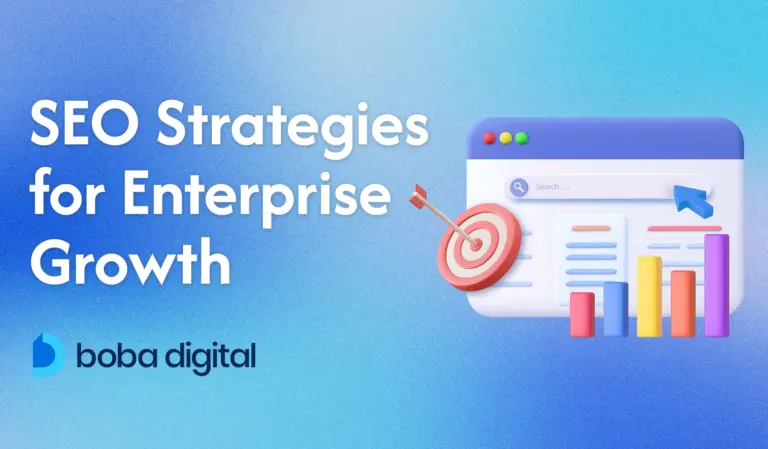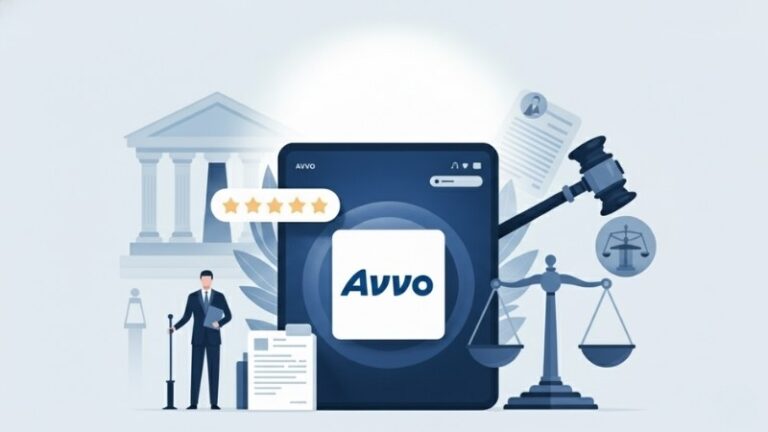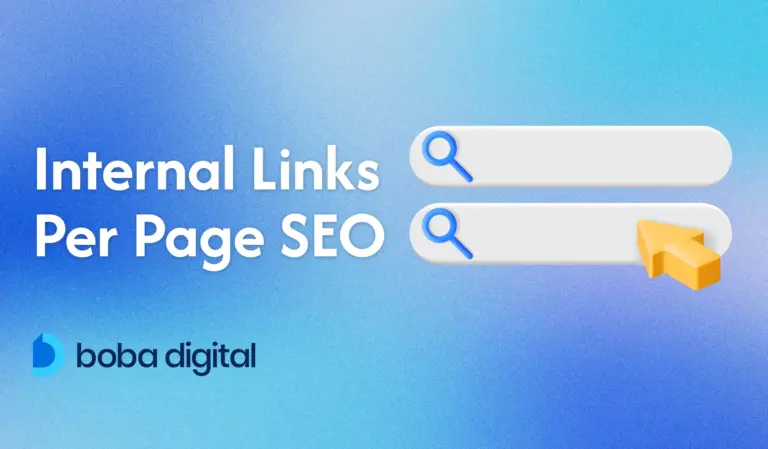How to Do Research for Local SEO : Fast Ways to Improve Rankings
If your business depends on local customers, local SEO isn’t just an option—it’s essential. A strong local SEO strategy ensures your business appears in local search results, driving organic traffic and bringing in more potential customers actively searching for your products or services.
In fact, 76% of people who perform a local search on their phone visit a physical store within 24 hours, and 28% make a purchase. Expand that to a week, and the number jumps to 88%.
To achieve local SEO success, businesses must focus on effective local keyword research, Google Business Profile optimization, and competitor analysis. By targeting location-specific keywords with high search volume, you can find implicit keywords that can improve your local rankings and connect with the right local audience.
Ready to boost visibility and drive more organic traffic? Let’s start with the fundamentals of local SEO keyword research and how to find relevant local keywords that set your business apart.
How to Do Research for Local SEO?
Conducting effective local keyword research is essential for businesses aiming to improve their local SEO rankings and attract more local customers. The key is to find relevant local keywords that align with what your target audience is actively searching for.
Keyword Research
Start by thinking like your potential customers—what phrases would they type into Google Search when looking for your services? Consider explicit local keywords, such as including location modifiers like city names or neighborhoods, which help refine search results to a particular geographic area.
Utilize keyword research tools like SEMrush, Ahrefs, or Google Keyword Planner to find relevant local keywords. These platforms allow you to input a seed keyword—such as your primary service—and filter results based on local intent.
For instance, a dentist in Chicago might search for “best dentist in Chicago” or “emergency dental care near me” to discover local SEO keywords with high search volume. Using a local top keyword list or research template can also help organize your findings effectively.
Choosing the right local SEO keywords goes beyond simply identifying popular search terms. A well-structured keyword strategy requires a close examination of keyword metrics, ensuring that your content attracts the right local audience while remaining competitive in local search results.
Meanwhile, keyword difficulty measures how competitive a keyword is, guiding you toward terms that are easier to rank for in local search results. Striking the right balance ensures your website targets relevant keywords related to your business while maintaining a strong local SEO strategy.
Competitor Analysis
Understanding the competitive market is crucial for strengthening your local SEO efforts. A detailed competitor analysis reveals which strategies work in your industry and where opportunities exist to improve local rankings.
The first step is identifying local competitors by conducting a Google search for your target keywords. Businesses that appear in the local search results, Google Maps, and online directories like Yelp are the ones you need to analyze closely.
Assessing Competitor Performance
A competitor’s Google Business Profile provides valuable insights into their local SEO success. Examining details like business categories, reviews, and service descriptions can highlight location-specific keywords they are targeting. Additionally, looking at their presence on business listings and customer engagement on platforms like Yelp can help refine your local SEO strategy.
Beyond business descriptions and customer reviews, analyzing a competitor’s backlinks, traffic, and content strategy provides deeper insights.
Tools like SEMrush and Ahrefs allow you to access a competitor’s domain, navigate to sections like “Backlink Profile” or “Organic Research,” and uncover key data such as top-ranking keywords, referral traffic sources, and backlink opportunities.
This information helps identify high-authority websites linking to competitors, allowing you to target similar sources to strengthen your local search rankings.
Leveraging Competitor Insights for Local SEO Success
A competitor’s strengths and weaknesses reveal actionable opportunities for your local SEO strategy. Identifying gaps—such as missing local keywords, weak local search intent, or a lack of location-specific content—allows you to position your business ahead of them.
Leveraging their most effective tactics while improving on their weak points ensures your local SEO efforts stay competitive.
With a clear understanding of how competitors attract local customers, businesses can refine their keyword strategy, strengthen their business listings, and drive more organic traffic—ultimately boosting local rankings and enhancing visibility in search engine results.
Local Business Citations and Directory Listings
A local business citation is any online reference to your business that typically includes your business name, address, and phone number (NAP)
These citations often appear in local directories such as Yelp, TripAdvisor, Angi, and Google Business Profile, offering valuable opportunities to boost local SEO efforts. Being listed in these directories helps local businesses gain visibility in search engine results, connecting them with potential customers actively searching for services in a specific location.
Why Consistency Matters in Business Listings
Consistency is the backbone of a successful local SEO strategy. Search engines depend on accurate and uniform information across all directories to confirm a business’s legitimacy.
When your business details—such as contact information, address, or website—differ from one directory to another, it can confuse both search engines and users, potentially harming your local rankings.
Maintaining consistent listings that reflect the same business description, local SEO keywords, and keywords related to your industry builds trust and ensures a seamless experience for your local audience.
Using Competitive Analysis to Expand Citations
Analyzing competitors’ business listings can uncover additional local directories that you may not have considered. Tools like SEMrush and Ahrefs are particularly useful for evaluating where competitors are listed, identifying relevant local keywords, and spotting opportunities to enhance your own local SEO efforts.
By mapping out keyword strategies and business listings, you can discover new places to establish your business’s presence, boosting your visibility in local search results and driving organic traffic.
Best Practices for Managing Listings
Effective management of your listings involves more than just ensuring accurate details. It requires regularly updating business hours, monitoring and responding to reviews, and engaging with customers on platforms like Yelp, TripAdvisor, and niche-specific directories.
Actively managing your presence not only improves your brand’s credibility but also enhances local search intent by providing search engines with the consistent information they need to rank your business favorably.
This approach ensures that when local searches are conducted, your business appears as a reliable and trustworthy option, contributing to long-term local SEO success.
Optimizing Your Google My Business (GMB) Profile
A well-optimized Google Business Profile (GBP) is a game-changer for businesses aiming to boost local SEO rankings and draw in local customers. Claiming and verifying your business listing is the first step to ensuring your business appears in local search results, enhancing visibility among those actively looking for your products or services in the area.
Learn from Competitors to Enhance Your GMB Profile
Taking a peek at your competitors’ Google Business Profiles can reveal effective strategies to improve your own. Pay attention to the business categories, descriptions, and local SEO keywords they use. Businesses that skillfully integrate keyword research into their profile descriptions and updates often achieve higher rankings in local search results.
By identifying keyword modifiers and embedding explicit local intent within your profile, you can create a more targeted and effective local SEO strategy.
Maximize Visibility with Accurate and Engaging Content
To make the most of your Google Business Profile, ensure your business listings are accurate and include location-specific keywords alongside those relevant to your services.
The right mix of business categories, a compelling business description, and frequent updates with promotions or industry insights can significantly enhance local rankings. Utilizing local keyword research tools helps discover relevant local keywords that align with your audience’s search intent.
Leverage Customer Interaction to Boost Local SEO
Engaging with customer reviews is not just good for your brand image—it’s also a smart SEO strategy. Prompt responses to Google reviews, whether glowing or critical, show both customers and search engines that you are committed to customer satisfaction.
A dynamic and responsive Google Business Profile, filled with accurate information and active customer engagement, can elevate your business in local search results.
Keep Your GMB Profile Fresh and Trustworthy
Regularly auditing your Google Business Profile ensures that it remains a valuable resource for your local audience. By maintaining an active profile, updating information consistently, and interacting with your audience, you create a robust local SEO strategy that not only drives organic traffic but also positions your business as a trusted choice in the local market.
Content Strategy for Local SEO
Creating content that genuinely resonates with a local audience involves more than just inserting keywords into your blog posts or service pages. It’s about producing valuable and location-specific content that speaks directly to the needs, interests, and values of the community.
When businesses align their content strategy with local search intent, they not only improve local SEO rankings but also build lasting relationships with potential customers.
Integrate Local Keywords Naturally
One effective way to attract local traffic is by naturally incorporating local keywords into your content. This means thinking like your audience—what would they type into Google Search when looking for your services?
Using local keyword research tools like Google Keyword Planner, SEMrush, or Ahrefs, you can find high-volume local keywords that align with your business goals. These location-specific keywords should be strategically placed within blog posts, service pages, and FAQs to enhance visibility in local search results.
Boost Authenticity with User-Generated Content (UGC)
Content isn’t just about what your business says—it’s also about what your customers say. User-generated content (UGC), such as customer reviews, testimonials, and community discussions, adds a layer of authenticity to your brand. Positive feedback often includes relevant local keywords organically, contributing to your local SEO efforts.
Highlighting customer stories or sharing experiences from local events not only builds trust but also enriches your content with real-world relevance.
AI-Driven Content Strategies
Embracing AI-powered tools can significantly boost your local SEO strategy. These tools analyze user data to dynamically personalize content, enhancing engagement and improving local search intent.
For example, an AI-driven feature that suggests products or services based on a visitor’s specific location can keep them on your site longer, signaling to search engines that your website offers valuable and relevant information. The more time users spend on your site, the stronger your local rankings become.
Engage with Your Community Through Localized Content
Effective content isn’t just about sharing information—it’s about making your business a part of the community narrative. This can be achieved by creating content around local events, neighborhood stories, and community-driven initiatives. Not only does this strengthen your local SEO efforts, but it also positions your business as a trusted resource within the local market.
Blending strong local keyword research, genuine user contributions, and AI-driven personalization, businesses can create a content strategy that not only ranks well in local search results but also truly connects with the community.
This approach ensures your business remains top-of-mind for local customers, driving more organic traffic and reinforcing a strong local SEO strategy.
Local Link Building: Build Trust and Visibility in Your Community
Link building isn’t just about improving your local SEO rankings—it’s about establishing your business as a trusted and recognizable name in your local area. When reputable local businesses, blogs, and directories link to your website, search engines see it as a strong signal of credibility.
These local backlinks not only enhance your visibility in local search results but also drive organic traffic from a local audience that is genuinely interested in your offerings.
Create High-Quality, Shareable Content
The foundation of a robust local link-building strategy lies in producing high-quality content that people find genuinely useful. Blog posts, industry insights, and local guides are excellent ways to create shareable content.
When your content provides real value to the community—whether through helpful tips, local news, or insights into industry trends—other websites are more likely to reference and link to it. Focusing on quality over quantity is crucial. A link from a well-established local website is far more valuable than numerous links from lesser-known sources.
Form Strategic Partnerships with Local Businesses
Partnering with other local businesses offers a practical way to generate relevant backlinks. Collaborate on content projects, co-host local events, or feature each other in blog posts to create organic link placements that benefit everyone involved.
Another effective approach is guest posting on local blogs or industry-specific websites, ensuring you select platforms with high domain authority (DA) to boost your SEO impact. These partnerships not only help with link-building but also strengthen your brand’s presence within the local market.
Community Involvement for Backlink Opportunities
Getting involved in the community opens doors for natural link-building opportunities. Sponsoring local events, contributing to charities, or participating in business organizations can earn your business mentions on official websites, adding authoritative backlinks to your profile.
Additionally, listing your business in local directories—such as the chamber of commerce, industry associations, and niche-specific directories—helps reinforce your presence. These directories also act as business listings that support local SEO efforts by confirming your business information across the web.
Make Link Building More Than Just an SEO Tactic
Effective local link-building is about building lasting relationships within your community. By being visible, engaged, and genuinely valuable, you attract local customers and establish your business as a trusted resource.
Each relevant backlink not only enhances your local SEO authority but also strengthens your brand’s reputation as an active and contributing member of the local community.
Measuring and Analyzing Local SEO Performance: Stay Ahead with Data-Driven Strategies
Achieving success in local SEO requires more than just setting strategies in motion—it demands continuous monitoring and thoughtful adjustments. Businesses that rely on guesswork instead of analyzing real data often struggle to improve their local search rankings and attract local customers.
Fortunately, tools like Google Search Console, Google Analytics, and Google Business Profile (GBP) offer valuable insights into how well your local SEO efforts are performing.
Track Key Metrics with SEO Tools
The first step in refining your local SEO strategy is understanding how potential customers find and interact with your business online.
Google Search Console helps track local keyword rankings, revealing which search terms are driving traffic to your website. Meanwhile, Google Analytics provides a deep dive into user behavior, showing not only where your local traffic is coming from but also how well visitors convert into customers.
Monitoring metrics like bounce rates, session duration, and referral sources offers a clear picture of which strategies are effective and which need adjustment.
Google Business Profile Insights
Your Google Business Profile (GBP) isn’t just a directory listing—it’s a powerful tool for understanding customer actions. Metrics such as clicks to your website, direction requests, and phone calls show how effective your listing is at turning online interest into real-world interactions.
If these engagement levels are low, consider refreshing your business description, refining local keywords, and posting regular updates with location-specific content. Keeping your profile active and accurate boosts your visibility in local search results and helps you connect with the local audience more effectively.
Adapt Your Strategy to Maintain Growth
SEO isn’t a set-and-forget task—it’s a dynamic process that evolves with search engine algorithms and changing user behavior. Regularly analyzing data from SEO tools allows you to identify which tactics are working well and which need refinement.
If specific local keywords aren’t generating traffic, experimenting with keyword modifiers or tweaking your content strategy can help.
Also, keeping a close eye on competitor performance and search engine results provides insights into market trends, helping your business stay ahead of the curve in a competitive local market.
Turn Insights into Action for Long-Term Success
Measuring local SEO performance is not just about reviewing numbers—it’s about using these insights to strengthen your strategy. Making small but strategic changes based on SEO data can lead to significant gains in local rankings and help attract the right target audience.
Maintaining a cycle of measurement, analysis, and optimization, businesses can ensure steady growth, increase organic traffic, and sustain their local SEO success over time.
Dominate Local Search with a Winning SEO Strategy
Achieving success in local SEO isn’t about quick fixes—it’s about consistency, strategy, and ongoing optimization. From effective local keyword research and Google Business Profile optimization to local link building and content tailored for local audiences, every element plays a role in improving local rankings and attracting potential customers.
Businesses that stay ahead of search engine updates, track performance, and refine their local SEO efforts will see the best long-term results.
Keeping up with local search trends and continuously improving your SEO strategy ensures your business remains visible and competitive. Whether it’s refining your keyword strategy, improving business listings, or adapting to shifts in local search intent, staying proactive makes all the difference.
At Boba Digital, we specialize in helping businesses like yours increase traffic, generate leads, and maximize ROI through proven SEO strategies. If you’re ready to boost your local visibility and drive real results, schedule a consultation today.
Let’s discuss your business goals and craft a strategy that helps you outrank competitors and attract more local customers. Schedule an appointment with us today!
FAQs
What tools are commonly used for local keyword research?
Popular local keyword research tools include Google Keyword Planner, SEMrush, Ahrefs, and Moz. These tools help identify high-search-volume keywords with local intent, allowing businesses to target location-specific search terms effectively.
Why is consistency important in local SEO listings?
Search engines prioritize businesses with accurate and uniform business listings. Inconsistent NAP (Name, Address, Phone Number) details across directories can lower local rankings and confuse potential customers.
How often should I update my Google Business Profile?
Updating Google Business Profile regularly—at least once a month—keeps information current, improves engagement, and signals activity to search engines.
Can I rank locally without a physical store?
Service-area businesses can rank locally by optimizing for local keywords, earning local backlinks, and fully utilizing their Google Business Profile.
What role do online reviews play in local SEO?
Reviews impact local search rankings, credibility, and customer trust. Responding to reviews, both positive and negative, strengthens local SEO success and boosts engagement.











